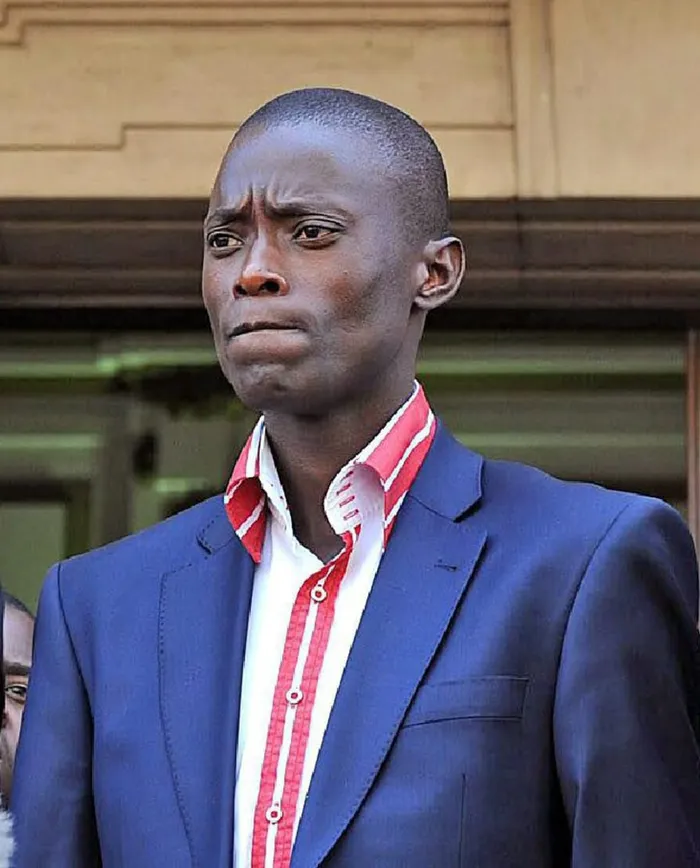
Sindiso Magaqa was killed in 2017.
Image: Supplied
THE recent assassination of U.S. political commentator Charlie Kirk has ignited a global discourse on the precarious state of democracy, the increasing polarisation of political landscapes, and the alarming trend of silencing dissenting voices.
While this tragic event unfolded thousands of miles away, its implications resonate profoundly in South Africa, a nation grappling with rampant political violence and the targeting of activists.
What happens when young voices are silenced, not by choice but fear? When does advocacy become a high-risk endeavour? For a country that relies on its youth to drive democratic renewal, these are not abstract questions; they are urgent calls to action.
Globally, political violence is on the rise. According to the International Institute for Democracy and Electoral Assistance (IDEA, 2021), political assassinations and targeted attacks against activists and dissenters are contributing to declining trust in democratic institutions worldwide.
Charlie Kirk’s death starkly reminds us that activism, even in seemingly safe spaces, is vulnerable to violent disruption.
In South Africa, political violence is a persistent challenge. Sources from the Global Initiative against Transnational Organized Crime (GI-TOC) and Corruption Watch indicate a significant number of politically-motivated assassinations and a worsening trend, with one report from May 2024 detailing over 141 assassinations in 2022 alone. Young leaders, community activists, and whistleblowers often face threats, harassment, and, in some cases, death.
Consider the case of Sindiso Magaqa, a rising youth leader in KwaZulu-Natal. In 2017, Magaqa was ambushed and fatally shot while opposing corruption within the Umzimkhulu local municipality. His death sent shockwaves through local communities, illustrating the perils that accompany youth leadership and political accountability.
Similarly, Nokuthula Mabaso, a prominent leader in the eKhenana Commune associated with Abahlali baseMjondolo, was assassinated in 2022 after advocating for land rights and choosing to testify against perpetrators of local injustices. These incidents expose a pattern: young, courageous voices are targeted, often with impunity.
Not all silencing is violent. Sometimes, it’s quieter, more insidious. Take Nhlanhla “Lux” Dlamini, once a household name. In 2021 and 2022, he commanded national attention as the leader of Operation Dudula, positioning himself as a voice for communities frustrated with crime, drugs, and unemployment.
He represented the raw energy of South Africa’s youth, fearless, visible, unafraid to take on government structures and even foreign nationals in controversial ways.
However, where is Nhlanhla Lux today? His voice has all but disappeared from public discourse. What does it mean when once-vocal youth leaders suddenly retreat into silence? Is it a sign of burnout? Disillusionment with politics? Or could it be the inevitable outcome of a system that punishes and intimidates those who speak too loudly?
For many young people watching from the sidelines, the disappearance of such figures raises uncomfortable questions: If even those who were once bold enough to challenge the system go quiet, what hope is there for the rest of us?
Political assassination is the most extreme form of silencing, but subtler tactics are widespread. South African youth activists frequently face intimidation, surveillance, smear campaigns, and online harassment.
Even non-political youth changemakers are not immune. According to UNICEF U-Report South Africa, 73% of youth reported needing mental health support in 2022, yet only 38% sought help. Could fear of retaliation for speaking out or advocating change contribute to these mental health gaps? Absolutely. How can a democracy thrive when the voices most likely to innovate and challenge injustice are systematically suppressed?
South Africa's youth, defined by Statistics South Africa (Stats SA) as individuals aged 15 to 34 years, constitute a significant portion of the population.
According to Stats SA's 2024 mid-year estimates, this cohort makes up approximately 33.1% of the country's total population and is a critical demographic for democratic renewal.
Yet they remain largely excluded from formal decision-making structures. When youth leaders are silenced, entire communities lose representation, accountability falters, and systemic inequities persist.
Kirk’s assassination forces reflection: What mechanisms exist to protect young leaders everywhere? Are they sufficient? In South Africa, current measures are inconsistent, enforcement is weak, and risks persist. This raises questions that demand urgent attention:
The answers lie in robust legal frameworks, community-based protection strategies, and continued investment in youth-led advocacy. Activate!’s programmes offer a model, illustrating structured support.
South African youth cannot afford silence. The stories of Sindiso Magaqa, Nokuthula Mabaso, and countless others are sobering reminders that activism carries risk, but democracy falters when voices are muffled. We can’t allow young people to be silenced without consequence. If we fail to protect them, what kind of democracy are we leaving for the next generation?
Youth voices must be protected, amplified, and supported. Civic education, participatory governance, and mental health resources are not optional; they are the lifeblood of a thriving democracy. Organisations like Activate! demonstrate that change is possible. Through mentorship, campaigns, and grassroots mobilisation, they cultivate resilient leaders who can navigate threats while pushing for justice and accountability.
Kirk’s death, while occurring overseas, resonates as a global cautionary tale. In South Africa, youth activists face tangible threats to their lives. The challenge is not only to mourn those lost, but to mobilise protective systems, strengthen civic participation, and safeguard democracy.
The question remains: Will we rise to protect our young changemakers, or will we allow fear to silence them? Only then can we build a democracy where youth leadership is celebrated, supported, and, most importantly, safe.
Zwane is part of the Activate! Change Drivers Writing Hub, where she uses storytelling to spark dialogue on democracy, youth leadership, and social justice.
CAPE TIMES